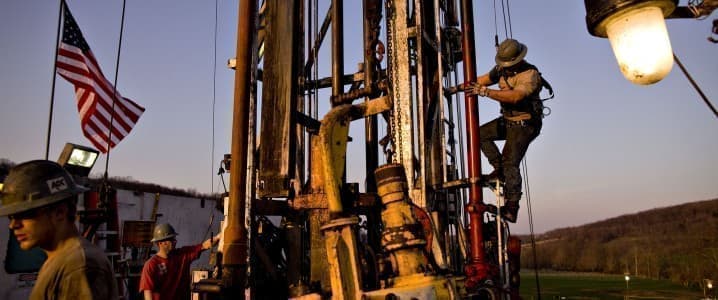As Covid-19 continues to shut down large swathes of the world, denting oil demand at a time when Saudi Arabia and Russia are set to increase supply, oil and gas companies are facing new challenges where its workers are concerned.
No One is Immune No oil company will be immune from the effects of the oil price war and coronavirus. While some companies will merely feel the pain, others may not survive, and the oil and gas industry workforce will suffer along with the companies that employ them.
The current oil price environment in which WTI is trading at $20 and Brent at $27 is simply unsustainable long-term--or even medium-term--for all oil producers, at least not without significant changes.
The larger, more integrated oil companies may be positioned better to weather the war/virus for a bit longer but ultimately, all oil and gas companies--the giants such as Exxon, Sinopec, or Aramco, as well as the small Permian frackers, are scrambling to make difficult decisions and adjustments to stay afloat.
For Shell, for example, the price impact on its cash flow from operations (CFFO) is estimated at US$6 billion per year for every US$10 per barrel Brent price movement. So far, Brent has dropped $10 per barrel many times over this year.
It's easy to see why changes to the oil and gas industry are coming. One of the significant changes oil and gas companies will make is to their labor force.
The virus is not only impacting demand, but oil and gas companies are also having to adjust to the new world reality of social distancing, ill workers who are out sick for an extended period, sending workers home who perform non-essential tasks, halting all company travel, and taxing companies with strict hygiene measures that are prompting companies to sanitize equipment and high-touch surfaces.
For offshore, workers in confined spaces on specific rotations present unique challenges that don't exist in onshore installations.
Related: $1 Oil: Saudi Arabia's Attempt To Crush U.S. Shale
Here are some of the staff changes made by various oil companies around the world:
UK/North Sea offshore: Oil & Gas UK (OGUK) health and safety director Trevor Stapleton told journalists that workers on UK offshore installations had been reduced from 11,500 to 7,000 under the new "minimum manning" directive handed down to tackle the virus, even as the oil and gas workers received an exemption from the lockdown. All non-critical maintenance, according to S&P Platts, has been postponed.
Norway's Equinor (NYSE: EQNR), who employees 21,000 employees across 30 countries, reported that it had one person test positive for COVID-19 earlier this month at its offshore Martin Linge field in the North Sea. The worker was kept in isolation in his cabin at Equinor and had not been evacuated. Equinor announced about one week ago that it would postpone US onshore drilling, allowing its operations to be cashflow neutral this year at $25 per barrel.
As early as in February, Chevron sent 300 Canary Wharf, London, workers home after one employee exhibited flu-like symptoms. The worker eventually tested negative for the coronavirus, and Chevron was working to bring back the workers who had been sent home.
US Gulf Coast: Industry sources cited by The Advocate say oil and gas producers and service companies in Louisiana are hemorrhaging workers. For Louisiana, this is critical, with nearly 2% of the state's total workforce employed by the oil and gas sector. Overall, the oil and gas industry in Louisiana employs some 260,000 workers.
US Shale: If Big Oil companies are the self-isolate of the oil industry, US shale are those in the ICU. According to Texas Railroad Commission's Ray Sitton, tens of thousands of Texans are being laid off in the state as rigs and drilling sites shutter due to not only the virus, but the oil price war as well. Companies in the state who have announced layoffs include Canary, Apache, and Halliburton, and more are expected to follow, World Oil reported, citing Brookings Institution.
"[T]here will be many bankruptcies in our industries and tens of thousands of layoffs over the next 12 months," Pioneer Natural Resources CEO Scott Sheffield told the Washington Post.
ADVERTISEMENT
And more job cuts may be coming.
"A sustained drop in oil prices would cost the sector 50,000-75,000 jobs if employment returned to its low from a few years ago," Nathan Sheets, chief economist at PGIM Fixed Income, told CNBC a couple of weeks ago. Since then, WTI has shed another $7 per barrel.
By Julianne Geiger for Oilprice.com
More Top Reads From Oilprice.com:
- Russia’s Plan To Bankrupt U.S. Shale Could Send Oil To $60
- Canadian Drillers Face Nightmare Scenario As Oil Crashes To $5
- The Cheapest Way For Trump To Save U.S. Oil

















